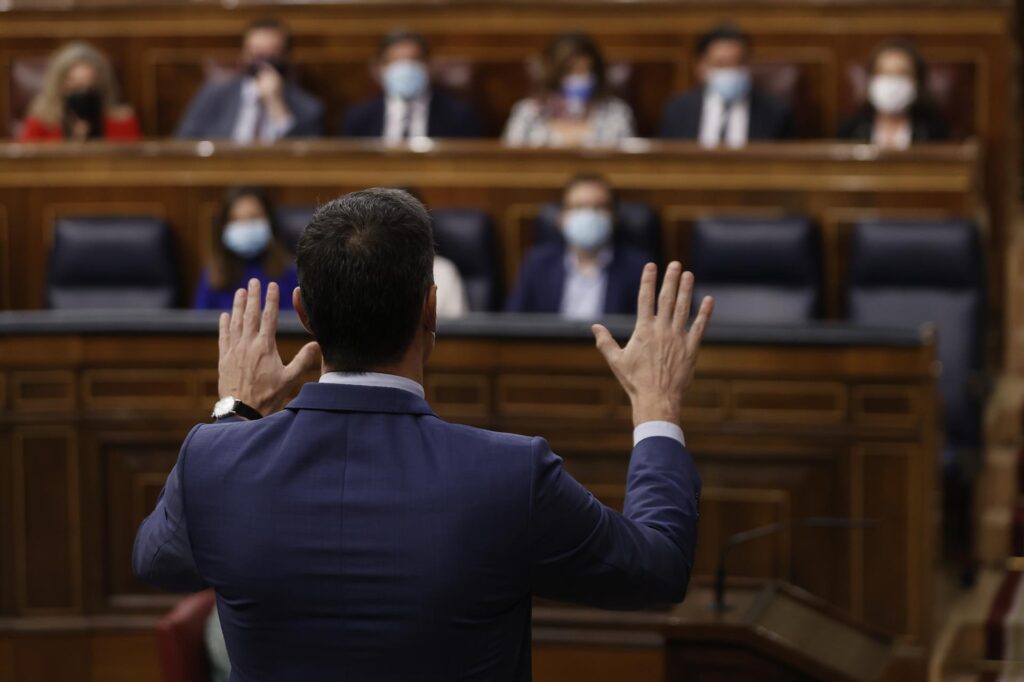11.11.2022 - 12:01
The Spanish government will replace the crime of sedition with one of “aggravated public disorder,” which will have a different maximum penalty. In an interview with La Sexta TV channel on Thursday night, prime minister Pedro Sánchez said that on Friday his party, the Socialists, together with their junior coalition partner, Unidas Podemos, will put forward an amendment to the criminal code that will see the crime of sedition “reformed”. Catalonia’s pro-independence camp, however, is far away from convinced by the reform, except for ERC.
In 2019, nine high-ranking Catalan pro-independence politicians and leading activists were sentenced to between 9 and 13 years in jail for their roles in the 2017 referendum, with the Supreme Court finding them guilty of sedition, a crime that was written into the penal code in 1822. Sánchez said that this move will put Spain’s criminal code “on the same level” as that of its neighbors such as France, Italy, and Switzerland. Indeed, the head of the government said that Germany removed the crime of sedition in 1970 and replaced it with one similar to that which the Spanish government parties will put forward on Friday.
The announcement coincides with the need of the Socialists to persuade some pro-independence parties to pass the Spanish 2023 budget, although Sánchez denied that it was the reason for his plans. All pro-independence parties have been asking for an amnesty for those who still face ongoing judicial cases stemming from the 2017 independence push. While Sánchez made clear in the interview that the move is not an amnesty, he did say that the decision aims to further de-escalate the political conflict with Catalonia and “put an end” to the independence push that peaked in 2017.
Reactions
Shortly after the announcement, Catalan president Pere Aragonès welcomed the news on Twitter, saying that “the elimination of the crime of sedition is an essential step for dejudicialization.” “We continue to work in order to put a complete end to repression and to be able to vote in a referendum, to resolve the political conflict and for freedom.”
The secretary general of Junts, Jordi Turull, said that the sedition reform seemed like “a tailor-made suit” to say that the events of October 2017 were a crime. In addition, he said that it is not a repeal, but that the criminal type is simply transformed and will allow the pursuit of independence to continue. “A repeal is what Zapatero did when he removed illegal referendums from the penal code. He erased it and did not change it for anything”, he declared.
The People’s Party secretary general, Cuca Gamarra, reacted very differently. She said Sánchez is “paying the price of being able to stay longer in the post at the expense of equality before the law.” Far-right Vox’s leader in Catalonia, Ignacio Garriga, said that “there is no bigger traitor than Sánchez.” Meanwhile, the also unionist Ciudadanos party head, Inés Arrimadas, said that the PM is “dismantling the criminal code.” “It sets a very dangerous precedent and gives in to separatists arbitrarily.”
As for Jaume Asens, the congressional president of anti-austerity Unidas Podemos, he believes Sánchez “has complied with his commitment.” “Democracy wins,” he added also on Twitter.
Potential impact on exiled Puigdemont
Sánchez also made clear that exiled Catalan president Carles Puigdemont, who has been in Brussels ever since the failed declaration of independence of 2017 in order to avoid sitting in the dock in Spain, would still have to “face justice” if he were to return. Puigdemont is not only being wanted in Spain for sedition but also for misuse of public funds, which may imply prison. PSOE’s speaker at the Spanish Congress, Patxi López, went even further and said that the extradition of those in exile will be now possible after the reform: “The sanctuaries are over”.
In a recent letter, the exiled leader denied wanting to return in the event of a move such as that which was announced on Thursday by Sánchez. “I understand that me accepting a resolution [of the conflict] based on the reform of the criminal code could benefit Spain, but I cannot see anywhere how this would benefit the Catalan independence campaign,” Puigdemont said in late October. “I do not seek or want this personal benefit,” he pointed out, adding that accepting a personal solution would be “giving up politically.”
Also, the Spanish PM anticipated potential criticism of unionist hardliners saying that the reform of sedition “will not weaken” Spain ahead of another independence push. Sánchez did not mention other exiled leaders, such as Marta Rovira, in Switzerland, who is only accused of sedition.


